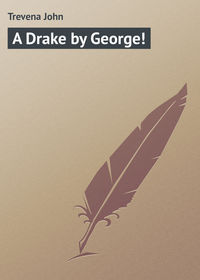 полная версия
полная версияThe Plowshare and the Sword: A Tale of Old Quebec
"Had I but known that she had grown so fair!" he muttered.
Gaudriole was grinning at his side. The dwarf put up his red hand and showed his chief a dead butterfly, its bright plumage well-nigh worn away, its wings crushed and wet.
"Short-lived beauty, Excellency," he leered, with the jester's privilege. "Yesterday shining in the sun. To-day!" He laughed hoarsely and dropped the ruined insect. "'Tis a world of change and contrast," he chuckled. "Mark this philosophy, my captain. When old age sends me white hairs and a reverend aspect you shall perchance call me beautiful, if you look not too closely at my hump; but when the bloom of yonder beauteous lady turns to seed – "
"Off, Bossu!" cried Roussilac angrily. "Learn to turn your jesting with a better judgment, or your tongue shall be slit and your back whipped."
"My faith!" the dwarf chuckled. "I have no back. I am like the frog, but shoulders and legs."
Madame herself appeared in a fresh white cap and an antique gown. It was not her way to be gracious, nor were her recollections of her nephew's fidelity of the happiest; so she did but greet him coldly, asking why he had now come since he had tarried so long.
"Good aunt," came the reply, "I would have sought you earlier, had I known you were in this land. I have not long held command, and my hands have been filled in crushing the strength of the Iroquois. I entreat you both to return with me now and take up your abode at the fortress, not indeed as my guests, but as an honoured mother and sister."
"Pretty talk," sniffed Madame. "I said in the old days you would make a courtier. So you, the governor of the land, knew nothing of this home of your poor relations a paltry two days' journey beyond the river. There is no man so blind as he who makes a living by that infirmity. This girl tells me that my son is dead. Died he in the faith of the Church?"
"Surely," said Roussilac. "But tell me I pray, good aunt, is it true, as this Indian says, that the English spy has already escaped?"
"Yes, he has gone," cried Madeleine, flushing warmly. "He has gone, Arnaud, to – to the west."
Her deceit was so transparent that even Roussilac could not restrain a smile.
"And why, fair cousin," he asked, addressing her with marked deference, "why should this Englishman seek the unknown west, where it is believed none dwell save Indians? Would he not rather turn towards the south, and seek New England and his own people?"
"Indeed I know not why he should seek the west," Madeleine replied, between tears and laughter. "But I do assure you he has gone in that direction – "
"Peace, girl," her mother cried. "The fool lies to you, Arnaud. She is a heretic, shame though it be, and her master is the father of lies. 'Tis true the English spy escaped in the early morning, but he knows not the land, and may yet be secured. I am surrounded all my life long by wickedness," the bitter woman continued. "My husband was perverted by the sin of science. Jean-Marie was but a knave. He left me here. Madeleine is a heretic, and she has threatened to leave me also. Well, I will come with you, Arnaud, but see that you give me a scented pillow for my head and a cup of warm wine at evening. Stand not there, nephew, like a wooden stock, but command one of yonder evil-faced rogues to bring up a horse fitted for the age and dignity of the first lady in this thrice-accursed land."
An evil smile curved the thin line of Roussilac's mouth. His aunt had indeed not changed; but she had yet to learn that he had advanced. He turned to where the priests were talking loudly in the shade of the grove, noting La Salle's anger at the failure of his mission, and a few paces beyond his troopers jesting in the sun. Then he looked upon the fair face of Madeleine and smiled again.
"Tamalan," he called, dividing his attention between the soldier he was addressing and his aunt, "prepare your pony for the use of the first lady in this great colony of France – the lady Madeleine Labroquerie."
He bowed slightly towards the silent girl.
For one instant Madame appeared to stifle. Then she drew back her lips and snarled at her nephew, yet without uttering a word.
"This is not Normandy, Madame," said Roussilac calmly. "And you have not here the boy whose cheeks you would smite when the angry fit was on you. This is the New World, and I am the Representative of his most sacred Majesty, King Louis the Thirteenth."
Madame started forward, two passionate red spots upon her cheeks, her bony hand uplifted; but Roussilac indicated the golden fleur-de-lys upon his breast and said, in the quiet consciousness of power: "Remember!"
The little woman stood for a moment motionless, grinding her teeth, her black eyes starting from a ghastly countenance, then flung herself back into the cabin, tearing at her hair and cap in the madness of her anger. Roussilac watched with the same quiet smile, and when she had gone turned to Madeleine and said:
"My aunt forgets that time may work a change."
"Pardon her," murmured the girl. "This solitude has touched her brain."
Then La Salle strode up with angry questionings: "Shall we tarry here all the day, Sir Commandant, while the heretic escapes? Know you not that New England swarms with Puritans, who, if they but hear of our weakness, shall fill this land and compel us forth by their numbers?"
"You speak truly, Sir Priest," Roussilac answered. "We do but waste our time."
Crossing to the men, he selected the five strongest ponies and the five most trustworthy soldiers, and charged the latter to ride out, secure the Englishman, and hang him out of hand. These men set forth immediately, while Roussilac turned himself to the task of soothing La Salle, and to the pleasure of flattering the fair lady his cousin.
CHAPTER XXIII
THE EVERLASTING HILLS
After their escape from the dangerous region of the fortress on that night of battle, Van Vuren and his band made towards the far-distant country watered by the Hudson, travelling under the guidance of Pieter von Donck across the unfrequented territory, over balsamic hills of spruce, through swamps and thickets, and across a desert of dusty stone, until they reached a range of green mountains which made an immense backbone along the land. Here they halted, and the note of argument was raised. Van Vuren had developed a sullen mood, induced by jealousy of Von Donck, who had taken the office of leader upon himself, and at this point he turned upon the sailor and a heated battle of words ensued. The captain indicated the flat district spreading westward, and confidently declared that the route lay there. His men obediently turned to follow, with the exception of Von Donck, who, when his argument failed, separated himself forthwith from the company.
"Take then your inland path," he shouted at them angrily. "You shall in due time come among the savage Adirondacks, where the Mohawks dwell unconquered, and where all manner of wild beasts fill the fastnesses. No white man has preceded you there. This way I smell the sea. Keep your course, captain, if you will not be ruled by me. I am for New Amsterdam and the hostel beside San Nicolas."
"Pieter knows the land," urged Dutoit.
"Go then with the stubborn fool," replied Van Vuren hotly. "Follow me, my men. This way for the sea!"
The rest of the company succumbed to discipline and followed their leader, though with manifest unwillingness; while Von Donck gave them over to their fate and travelled alone into the green hills.
What befell Van Vuren and his company history relateth not. It is certain that they were never taken by the French, because the party which Roussilac had sent out returned in due course to the fortress, and reported that they had failed to discover any trace of the traitors. But at a later date there went a story about Hudson's river, concerning a party of Dutchmen said to be haunting the spurs of the Adirondacks, weather-beaten men, wrinkled and long-bearded, their feet covered with scraps of hide, their clothes eked out by furs, continually setting out upon a journey, but always returning to their starting-point. Still later, after New Amsterdam had been conquered by the English and had received the name of New York, mothers would often frighten their errant children with the tale of the lost Dutchmen who wandered about the north, their beards dragging on the stones and tangling among the bush, watching the sun by day and the stars by night, and sometimes separating as though in anger, but only to combine again and renew the hopeless search. Probably Van Vuren and his men were destroyed by the fierce Mohawks; possibly they fell a prey to the animals which roamed in their thousands among the Adirondacks, or perished of want after their ammunition became exhausted; the one fact is certain that not one of them ever reached the sea-blown country of the Manhattoes.
While this fatal dissension took place Geoffrey was crossing the plains upon the further side of the green mountains, only a short distance ahead. He had made excellent progress, concealing himself cleverly from bands of marauding Indians, guiding his feet by the constellations at night, and searching by day for the tree-moss which delicately furred the north side only of the hemlock boles; but there still remained over two hundred miles of wild country between him and the town of Boston. He tramped on, unheeding sore feet, feeling the spirit of brave Madeleine at his side, averting the perils of night, guiding his feet accurately southward. As time went on, and he reflected how great was the distance he had already traversed, the joy of life became so strong that he could have flung away his sword and dared the world with bare hands.
Two weeks had passed since that parting from his comrades; and on the evening of the fourteenth day he broke from the bush and for some moments stood bewildered at the scene before him, blinking his eyes, and longing to step back into the greenwood shade.
White masses of mountain glowed ahead, peaks and crags all glittering in the sun like a huge cascade streaming down from the clouds; ranges of pure crystal, polished like glass, and edged with rose-pink by the colours of the western sky; snow-white gorges of milky quartz, and silver cataracts flung in foam from the whiteness above to the green below.
"These," he said softly, with a thrill of old-world superstition, "these must surely be the great crystal mountains where the Iroquois believe that the gods dwell."
He hurried on, his eyes watering because of the dazzling light reflected from those crystal walls; and as he went he turned to lover's thoughts, and determined that, after all, the sun glow upon the white peaks was not one-half so lovely as the flush upon Madeleine's soft cheek. Here before him was Nature's finest insentient handiwork. It was glowing and full of music, but its loveliness lacked life, and its warmth was borrowed from the sun. It was only beautiful as a part of the environment of the life of the soul. How he longed for Madeleine to stand at his side and behold those everlasting hills in splendour and the sun swimming in red! And with that longing he half unconsciously breathed the healthful text to which she had attuned her happy soul, "It is life – glorious, everlasting life!"
Vitality rose to its full height within Geoffrey's body; and when he felt no more the weight of his heavy kit, he ran over the broken ground and up the narrow gorge, until two white walls closed him gently into the panting bosom of the crystal hills.
"Here is the home of fairies," he exclaimed, when he stopped at a great height, and looked upon three tiny lakes which made a trinity of motionless mirrors decked by feathers of cloud, the water like white wine brimming in great bowls of granite.
Immediately a gentle voice was wafted through the air, "Here is the home of fairies," and after a pause the information was repeated like the warble of a weary bird, the last notes dying inaudible around the cliffs.
Geoffrey dared not speak again. The genius of the place was over him, waiting to give a signal to the expectant choir. Footfalls preceded the traveller, the echo of his own. The many-mouthed King of the Mountains pattered before him, breathing the stranger a gentle welcome to the district which he ruled. Geoffrey crept on tiptoe to the edge of the nearest pool, until he could see the weedless rock-bottom and the land-locked salmon lying near the surface, gently fanning their red fins, and watching him with wondering eyes. Seating himself, the traveller bathed his weary feet and watched the water swallows, darting and splashing, snatching the fat flies which spotted the surface like drops of rain, sucking them in and pushing out their little black noses for more.
The sun went down and a chill crept into the wind. Geoffrey left the enchanted spot, and the salmon shooting like silver arrows through the darkening pool, and, again ascending, entered a richly-wooded glen through which a cascade ran in a white thread; and here, close to a winding path beaten out by the feet of mountain sheep, he pitched his camp and ate his frugal meal of dried meat, which he eked out by a few early berries and some sweet roots of the wood althæa.
The light went out from the long day as he sank into dreams of Madeleine. He pictured her swaying among the scented grasses of the lowlands, or breathing a prayer for his welfare while she awaited the evening star in the faint blue of the sky. He saw her leaning from the hill-top watching the southern line, and bounding joyously away when she found the sky all clear. He imagined her lying asleep with her mind awake for him; and he believed that in his sleep her sweet dreams would cause his lips to open and his tongue to call her name.
A rustling in the near bush recalled him to the present. He thought the sound was occasioned by some restless bird, but when the disturbance became more decided, he rose, alert, and, putting out a hand for his bow, shrank back into a place of shelter. Hardly had he done so when a thicket of willow shivered and parted.
The watcher saw two savage eyes aglow like lamps, and as he sank to the ground and remained motionless as a figure of stone, a great panther slouched into the open, with its nose upon the ground.
The creature passed, blowing up the dust as though following a fresh scent. Geoffrey noticed with a thrill of relief that the ground it was intent upon was not that which he had traversed. When the huge cat had crawled into the bush, he drew out one of his few remaining arrows and cautiously followed; but not more than twenty paces had he advanced into the clinging bush when there came to him for the first time during his wanderings the exclamation of a human voice.
Geoffrey plunged forward recklessly until he saw a circular opening such as Nature delights to make in her laying out of the densest forest. The cataract formed the left; a bank of trees rose to the right; opposite him a big man sat in the half light, holding a smouldering pipe, his eyes fixed in terror upon the panther, which lay upon its belly half a dozen yards away, growling and lashing its tail in its savage cat's joy. The man was unarmed. He had left his pack and weapons under a shelf of white rock which gleamed behind.
Viner edged nearer, but as he stirred a twig snapped and the panther looked round, its eyes full of fire and blood. At the same moment the stout man discovered his rescuer and a flush of colour returned to his bloodless cheeks. Keeping his eyes upon the enemy, he began to crawl towards the rock, shouting as he went: "Drive at him, boy. Send a shaft through his neck, and Pieter von Donck shall stand your friend for life."
The bolt, well-aimed by the boy's cool hands, sprang that instant into the beast's shoulder. As it felt the sting of the barb, the panther roared and leapt mightily into the bush, landing upon the exact spot which Geoffrey had cleverly vacated in time to save his life. Again Von Donck bellowed like a bull:
"Let him have one such another, comrade. Then into the bush and dodge him. I have powder here and ball."
Geoffrey hurriedly slipped another arrow along the groove of his cross-bow and secured the string. Quick as he was, the great cat was quicker. It hurled itself upon the tree behind which its enemy had taken shelter, and its iron claws wrenched off great flakes of bark. Again Geoffrey saved himself by leaping back, but the panther was up at the rebound and on him. For the third time Geoffrey dodged, and in doing so released the string, and the bolt, by happy chance, pierced the demon in the chest as it descended. The next instant Geoffrey was felled to the moss. But this effort was the panther's last. An explosion shook the bush, there came a villainous smell of saltpetre, a whirl of smoke, and the mountain cat fell upon its side, quivered, and lay dead.
"A brave invention this powder," snorted Von Donck triumphantly out of the smoke. "But methinks too costly save for an emergency." He broke off and muttered into his beard: "A thousand devils! The boy is English."
"A strange meeting, friend," said Geoffrey, as he rose somewhat blindly to his feet.
"Adventure makes many an alliance," quoth the Dutchman. "Were you black, or brown, or yellow man, I would take your hand and swear to stand your friend. You have saved my life, boy. Nay, deny it not, and at the further risk of your own. By my soul, the brute has clawed your shoulder. This must be seen to. Come, lie you here, while I bring water and wash the wound and bind it up as best I can. A pestilence destroy these same unholy animals. They strike a man like lightning."
"If I have saved your life, you have done as much for me," said Geoffrey. "Let us divide the honours."
"A hand-shake upon that," cried the hearty Dutchman. "We are enemies by blood, boy. You have fought against my people before this night, and are like, I doubt not, to do so again. The Puritans of Massachusetts have their eyes upon our New Netherlands. You and I may yet meet upon opposite sides in the battle; but may God forge a thunderbolt for my destruction if I do not seek to preserve the life of one who has shed his blood for me. I suspect, boy, you are no true Englishman. I dare swear your father or mother came of a good Dutch stock."
"I am English born and bred," said Geoffrey. "I could wish you were the same," he boldly added.
"Out, jester!" said the big man as he went down to the cataract. "It is your envy speaking. Black never made itself whiter by longing."
The Dutchman returned with his hat half filled with water and attended to the injuries of his new friend, with podgy hands which were but a little less rough than the nature of the man who owned them. Every protestation on the part of his patient he silenced by a growl. When the slight flesh-wound had been bandaged, he replenished the fire to keep other mountain cats at bay, and they sat together under the white wall, Von Donck occupied in skinning the defunct panther, chatting noisily the while.
"Do you wonder that I speak your language when I have been brought up to a better?" he observed as the soft night grew upon them. "A soldier of fortune must needs pick up all he can, grains and chaff alike. Many years past, before that yellow hair of yours had grown to trouble a maiden's heart – Ah, that blush was good. Shall repeat the phrase. Before that yellow hair had grown to win a Dutchman's heart – see how I spare your blushes to hurt your pride – I served under Hendrick Hudson, who called himself English, though plague me if I could ever tell what was English in him save his oaths. I promise you he could ring an English oath to drown the best of yours. To-morrow will tell you how I sailed with him up the Mohican river which now bears his name. 'Tis a happy day for you, young comrade. Your future wife and children shall bless this day – when you and old Pieter met. Plague the lad! His face is like a poppy in a corn-field. Shall stand together, young yellow-head, till the end of this journey. I do not seek to learn your business, but you shall know mine. I am going home, boy, back to San Nicolas by the sea, and there shall grow a yet rounder belly, and tell travellers' tales, and toss my neighbours' children upon my knee. We shall part in New England, enemies if you will, but until we reach the fields of the Puritans we stand together, and the Indians that burn you shall burn me also."
"How come you to be travelling alone?" asked Geoffrey.
"When you reach my age, young whipster, you shall learn that questions are like thistle-seed, tossed here and there, serving no better purpose than the sowing of a fresh weed-crop. I ask no question, but I know that you carry a despatch to your Puritans in the south. See how shrewdly I have hit it. Until two days back I travelled with my company, but when they chose the way which leads to destruction I left them. They have gone to the devil, and I am for the sea. At this present time I am for sleep. When the moon touches yonder ridge, wake me and I will take my watch. This panther's family may be on the prowl."
"'Tis a fine skin," said Geoffrey, indicating the striped coat which Von Donck was stretching along the rock.
"Will look well upon my shoulders," said Pieter complacently. "'Tis mine by hunter's right. Shall swagger about New Amsterdam in it and shame the burgomaster. At nights will sit in the hostel and say how I killed him with mine own hand. The folk shall not believe, but I shall have the hunter's satisfaction of making a brave show. By San Nicolas, the brute shall not die so easily when I come to tell the story."
The garrulous old sailor made a bed of grass and moss, and prepared to sleep. Suddenly he broke into a deep laugh, and lifted his hand to indicate a crystal ridge towards which the moon was drawing. "See you how yonder granite is shaped into a man's face?" he said. "And, as I live to sin, a likeness of mine own. See there my crooked nose and flabby forehead and my hanging lips? Behold my beauty, boy, and bear in mind that Pieter von Donck and yourself are the first travellers in these crystal mountains. Ah, Pieter von Donck! Pieter von Donck!" he continued in a shout, lifting himself upon his elbow, and shaking his fist at the massive face of granite. "You sleep well yonder, Piet von Donck. May you sleep as soundly for ten thousand years. Now, boy, remember me in your prayers, but see that you put me not before your sweet maid. God forbid that you should put an ancient rogue before her. Forget not to shake me by the shoulder when the moon snuffs the nose of yonder old man of the mountains."
He fell back and soon began to snore, while Geoffrey watched the stern stone profile and the moon rolling serenely over the crystal heights; and as he watched he drifted away into dreams.
These aerial castles toppled and fell when there came to his ears from the adjoining valley a disturbance, which might have been occasioned by mountain gnomes beating the rock with hammers of iron.
CHAPTER XXIV
ART-MAGIC
Throwing off his sleep with a deep breath so soon as Geoffrey touched his shoulder, Von Donck stared up at the moon, and then upon the equally pale face of the watchman, who knelt over him and exclaimed: "Hear the sounds along yonder valley?"
In a moment the Dutchman was on his feet, alert and listening.
"So," he snorted, when the steady tap-tap of the fairy hammers reached his ears. "We are first here by only a little. How is that shoulder, young fighter? Too stiff to draw a bow, or cross a sword?"
"What mean you?" asked Geoffrey.
"Frenchmen are upon us. The knaves to ride o' night when honest folk sleep! They have forgot that the blessed echo carries far beyond them. Now 'tis for me to contrive some snare for your executioners."
Geoffrey quaked at the ugly emphasis which the big man gave to his words. A new feeling of security had come to him with the sealing of his partnership with the stout Hollander; and it appeared as though his dream of safety was to be dissipated before it had taken a concrete form.
"What else think you?" went on Pieter, with his snorting laugh. "Shall Roussilac allow a spy to reach New England, there to make known his weakness, without striking a blow for his capture? See you that straight limb on yonder pine? I tell you that slim body of yours would have swung there ere sunrise, had you not by good luck fallen in with Pieter von Donck."





